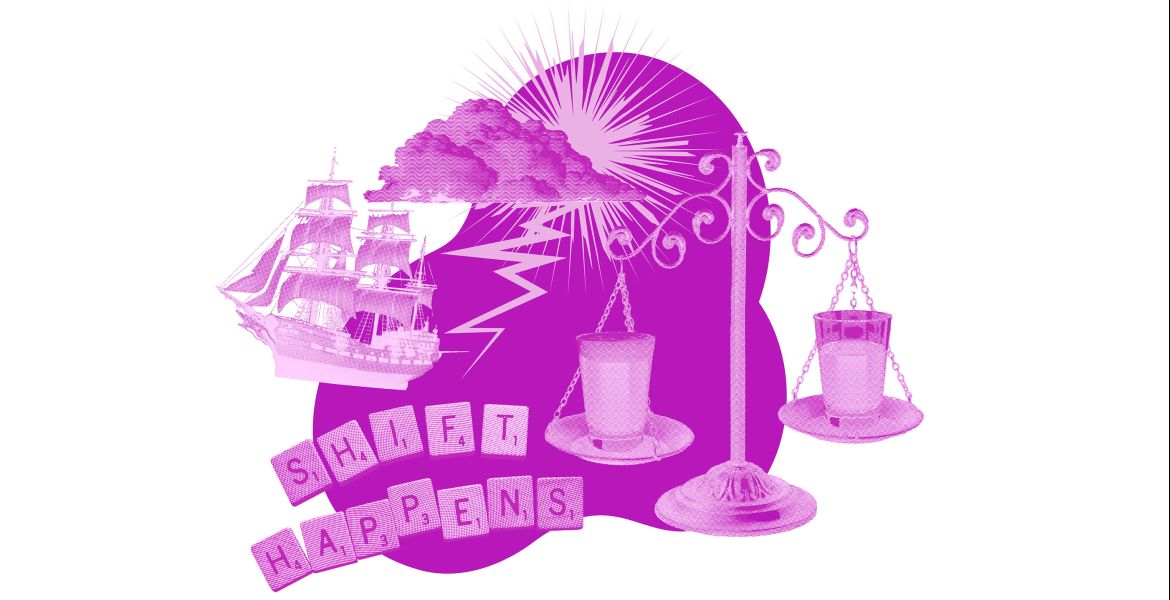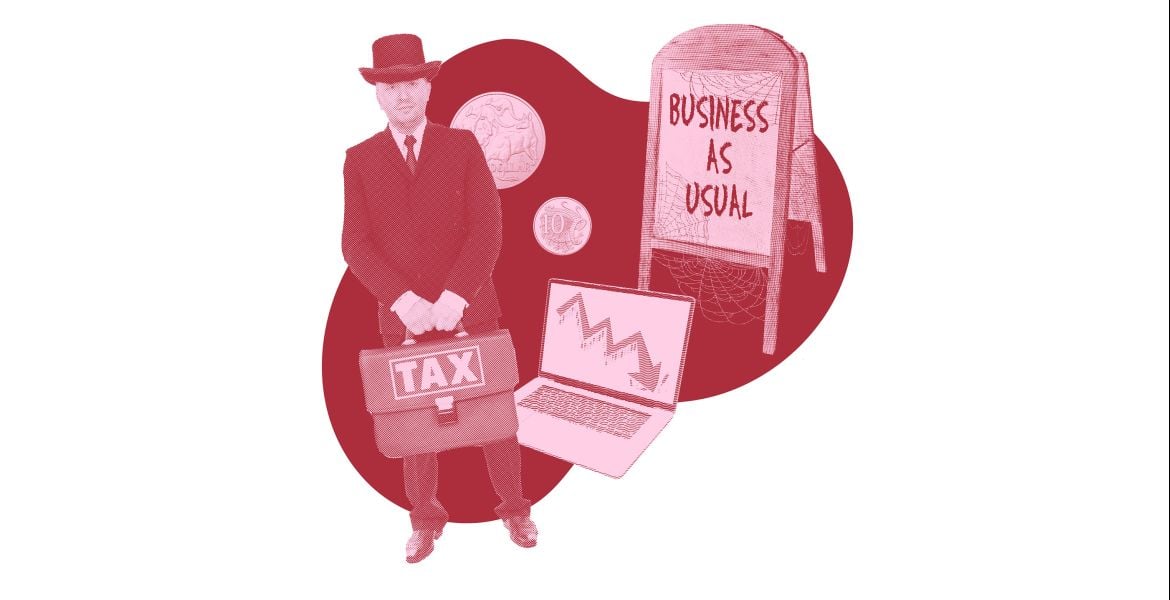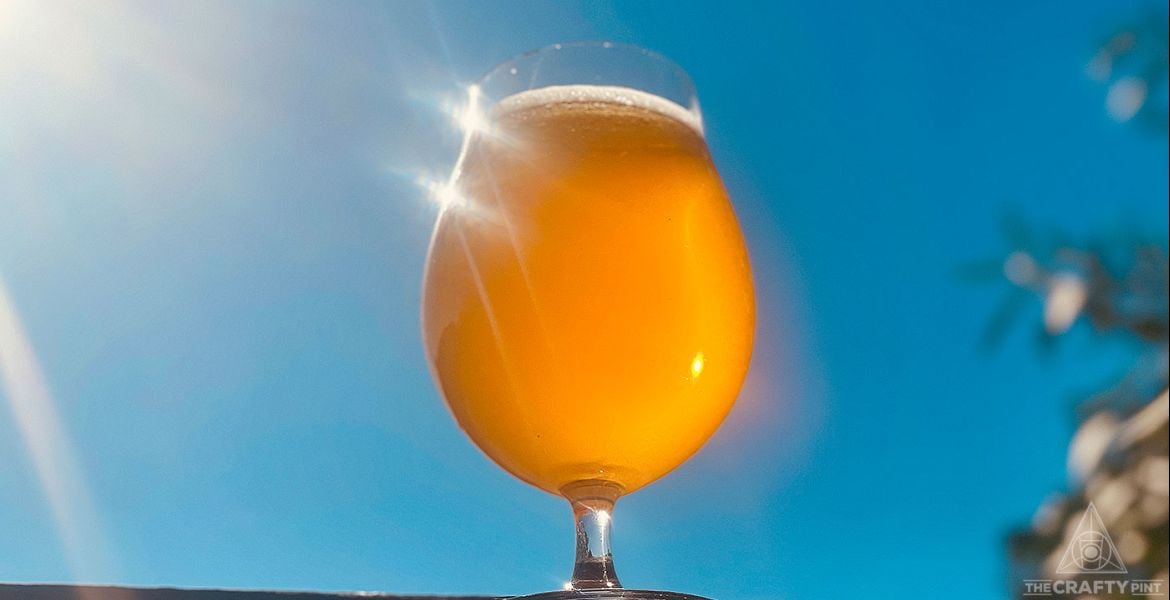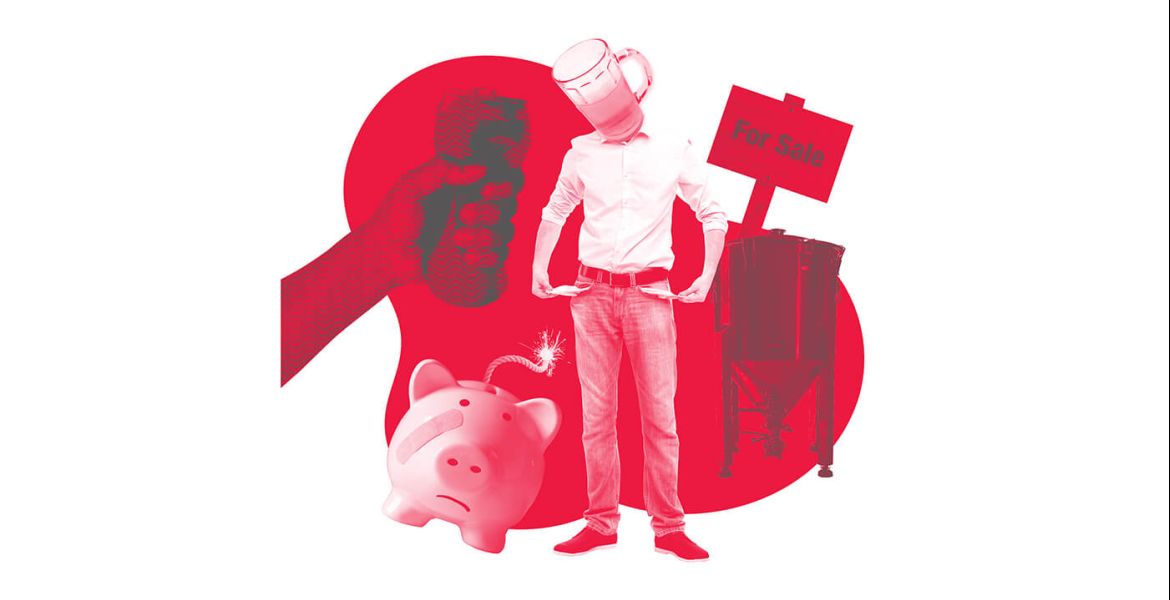Over the past two years, voluntary administration has become an all-too-common phrase in the beer world, a sign of the challenges faced by the brewing industry at a time when the wider economy is experiencing an ongoing downturn.
While the number of VAs represents only a small percentage of the entire brewing industry, the attention they've garnered and the debate they have sparked have become a defining feature of the time.
In a series of past articles, we've examined the causes of craft beer's woes and looked at the impact of voluntary administrations on the wider industry and its suppliers. Here, a brewery owner offers their thoughts on the matter – the repercussions for other brewers and beer as a whole – informed by conversations they say are commonplace throughout the industry.
In part two, we feature responses to the questions posed by The Secret Brewer from a number of the businesses that have been through VA as well as the Independent Brewers Association.
It goes without saying that the past couple of years have been incredibly challenging for the brewing industry and the wider community it serves. Just when we thought we could look forward to better times – or at least a return to some sort of normality – we were hit with rocketing interest rates and prices at the same time as most people’s disposable income started to shrink.
I know this all too well as I’m a small brewery owner, one of hundreds across Australia fighting to survive in the hope my business will be able to thrive again in the future. I’ve been in the brewing game longer than most in Australia – well over a decade now – and have never faced a series of seemingly never-ending blows like those to have rained down on us in recent times.
Negotiated a better deal with your malt supplier? Well done. Here’s a CO2 shortage to deal with instead.
You've just secured a new tap at a pub in town? Ah, sorry. The rep from the multinational whose beers fill most of our taps and fridges says we’re not meeting their volume target for rebates so you’ve got to go.
Managed to reshape your business model to keep your head above water during the economic downturn? How about you now factor in a few bucks extra per case for the latest container deposit scheme?
In short: I get that it’s tough, really bloody tough, and probably won’t get better for a while. Yet, for all of the external factors that have hit the brewing industry, I know I’m not alone in feeling that some of the suffering is very much self-inflicted.
Above all, I’m talking about the impact of the spate of voluntary administrations, or VAs, that have become part of everyday language in the beer industry over the past two years. Last year, they felt commonplace, but in 2024 they’ve felt like an almost weekly occurrence. And I believe they’ve damaged the industry in several ways.
Don’t get me wrong: I’m aware that each case of VA is unique, that the process of administration is a legal tool open to business owners struggling in an economic crisis like the current one, and that it is a stressful, painful process to go through that can bring with it new, ongoing challenges. And I’m sure none of the business owners who chose to follow this route, whether they remained owners afterwards or not, did so lightly.
Yet the repercussions are manifold. And they can all, in one way or another, impact every other brewing company negatively.
When industry suppliers lose out – and some have both frequently and, on occasion, significantly – then they’re going to consider changing the terms by which they do business with everyone, even those customers with whom they’ve never had an issue in the past. What's more, we've seen cost of goods increase in some cases as suppliers, understandably, pass on some of their losses to brewers.
The Australian Tax Office (ATO) has typically been the biggest loser in DOCAs (Deed of company arrangements) so how are they going to view the industry when at the same time it’s attempting to fight for excise tax change? And how are they likely to treat other brewing companies when they’ve lost millions of dollars elsewhere?
The issue of cheap kegs – viewed by many as a race to the bottom – has been around for years but has only worsened as administrators look to sell off whatever they can as fast as they can. Sure, the good venue operators out there will continue to buy on quality, relationships and what sells, but there are plenty – even those that paint themselves as craft beer venues – who aren’t going to turn down $150 kegs.
I cannot envisage any set of circumstances in which it is sustainable for an indie brewery of any size to be able to sell a keg of pale ale for $100 less than the multinational brewers are selling their big brand lagers. And if you’re not charging enough for your beer, how can you expect to pay your bills, unless you’ve got roaring trade through your own venue(s) or backers with very deep pockets?
Another point of discussion both within the industry and among consumers is what appears to be the flat-pack nature of many of these VA processes: business calls in administrators, possibly after carrying out a bit of restructuring / staff redundancy first; business issues heartfelt plea for support in these awful times, which sees sales and patronage of their venue rise; then a few weeks later, the business presents a proposal to pay ten cents on the dollar to creditors and it’s back to business. Albeit with seven figures in debt wiped off the books.
Now, as I said above, every case is different and there’s no guarantee businesses that enter VA will emerge from the other side, whether under existing owners or a new consortium. But perceptions matter and it doesn’t take long to realise how back-to-back-to-back administrations have fostered cynicism among consumers who assume it’s just a means of wiping debt and moving on. Take a look at how the mood of the public’s comments on social posts about administrations has moved from overwhelmingly sympathetic and supportive for the first few to ennui, annoyed or, in some cases, anger.
Some of the excesses of the industry that were building at the end of the 2010s – and went into overdrive during the lockdown years proliferation of $15 cans filled with imperial this, pastry that and smoothie the other – have already given those who’d love nothing more than seeing craft beer fail a stick with which to beat us; do we want to give them another?
What’s more, even within the industry itself, the spate of VAs has fostered another negative outcome: a splintering of a once almost uniformly collegiate industry.
Sure, when times are tough and the marketplace becomes more competitive, not least when the independent sector is up against duopolies in brewing (Lion/Kirin and CUB/Asahi restricting access to market), retail (Coles and Endeavour Group with their own crafty brands), and hospitality (ALH and Australian Venue Co each control hundreds of venues), then craft beer’s famed “we’re all in this together” spirit is going to be put to the test. But it’s hard to think of another single factor that’s risked creating a wedge more than this.
When you’ve taken whatever steps you can to ensure your business is lean enough to survive and pay its bills – letting beloved staff go, cutting your own pay, abandoning plans for family holidays, remortgaging your house, and so on – it’s hard not to wonder whether it could all have been different if you’d chosen to defer excise tax during COVID, or allowed debts to build in other ways, then wiped away the bulk of it by going through administration.
As one fellow brewery owner has asked, tongue in cheek: why doesn’t the industry carry out a mass VA and clean all of our ATO debts. (One weakness in this hypothetical class action-like approach is that many of us have no ATO debt to clear.)
Which brings me to another pertinent question related to excise tax. All breweries must pay excise and factor it into their pricing, so when they are paid for the sale of their products they are collecting excise. If they chose to delay paying excise, where did the money go?
In most cases, breweries received JobKeeper and other government grants during the early years of the pandemic. In conjunction with taking actions that led to the rise of the word “pivot” and a spike in retail sales, this meant they were able to return a profit. In such cases, businesses should have been able to keep up with excise payments.
If that money was instead used to fund expansion or to buy new equipment, and a business subsequently ends up in administration, you can understand why I’ve had conversations with peers in which we’ve pondered the same question: why do they deserve sympathy? Or, to put it another way: why do they warrant the support of consumers more than the majority of breweries that are operating in the same economic climate, have found a way to keep paying their bills, and would also benefit from people buying their beer?
I understand this might come across as a “woe is me” plea, but I can assure you I’m far from alone in my thinking, and that the above considerations – not to mention the impact on staff who have lost out on unpaid earnings, bonuses or super during VA processes, or investors and, in some cases, crowdfunding supporters – deserve to be part of any conversation around administrations and their ramifications for the beer industry in Australia.
It's true that the number of VAs, in the context of the entire industry, is relatively small. But there will be more to come, no doubt, especially as we enter another winter with the nation’s disposable income already running dry. And I appreciate that for many under-pressure small business owners who’ve found themselves in this predicament, in part down to external factors, this is a last resort.
Yet, harsh as it might sound, if this is a rationalisation of the industry after a decade-plus of rampant growth, then maybe more businesses need to close rather than restructuring their debts under administration, only to emerge anew under an ownership team made up of old faces, new faces or a mix of both.
Or, at the very least, we need to be having a more open discussion about the impact such processes have had, and will continue to have, on the beer world I and many others love, whether in terms of making it harder for others to operate, or the reputational damage they risk doing to craft beer as a whole.
The Secret Brewer is a very occasional series on The Crafty Pint allowing members of the industry to discuss issues they believe are impacting the industry. They are followed by a second article featuring responses to the questions raised in the first piece.
The article above has been edited together from written submissions and a series of calls with the brewer.
















